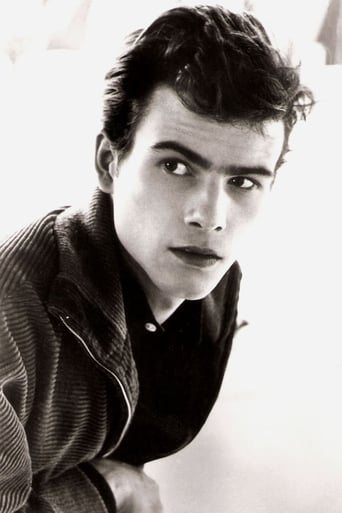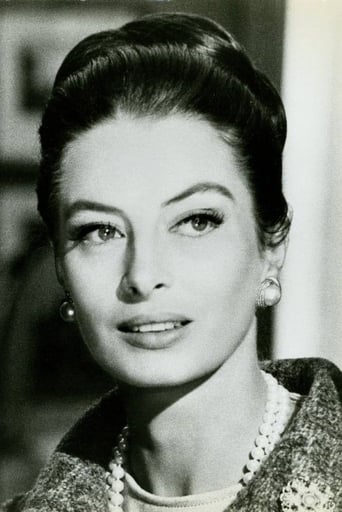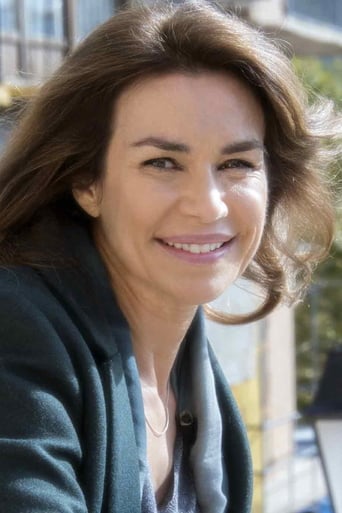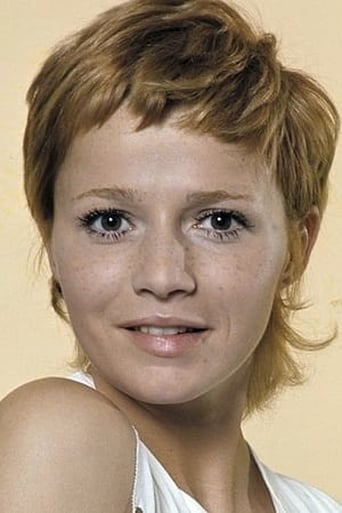Diagonaldi
Very well executed
Evengyny
Thanks for the memories!
Afouotos
Although it has its amusing moments, in eneral the plot does not convince.
Tayloriona
Although I seem to have had higher expectations than I thought, the movie is super entertaining.
Hans-56
The makers of this movie wanted to make a story, late Victorian, set on a breathtakingly beautiful Greek island. But soon they realized that there was not much of a story, the actors were not good enough to spice up the dull characters. And then they remembered Caligula. It suffered from the same shortcomings, but became a best seller by the use of sex.So sex was introduced in this movie, including a few orgy scenes. It is all soft core-on-the-edge. And that was the first mistake. It is the 80's. Nobody is shocked by naked people anymore. The second point is that all the sex doesn't really help the characters. In the beginning of the movie they don't mean anything to you, by the end of this movie you don't even care about them. The acting is partly reasonable, partly intolerable. The movie itself is smothered in pretenses.On the positive side: a lot of attention is paid to the costumes and the settings. The actors are quite attractive. The camera work is excellent: the soft focus effect really adds to the weird atmosphere. It also works in one or two carefully filmed love scenes, filmed in a "Bilitis" David Hamilton style.All in all this is a dreadfully boring movie, pretentious and not delivering on any level.I rate this 3 out of 10.
lazarillo
Here's an odd movie. It seems to be another entry in the "Emanuelle" genre of would-be classy but often insufferably pretentious, or just plain risible, European erotica. This movie is even more pretentious than most, however. It is set on a yacht and private Greek island of a gun dealer and libertine in the last days before the start of WWI. The libertine gets his companions on the "pleasure cruise" to act out parts he has assigned them from a famous erotic play about the goddess Aphrodite. Fantasy and reality begin to merge and become indistinguishable--at least until the erotic revelry is broken by real-world historical events.Despite this arty, historical backdrop, the raison d'etre of this particular piece de resistance is pretty clear--sex, sex, and, of course, sex. The girl cast as Aphrodite is the virginal niece of one of the older passengers (Cappucine), who is being blackmailed by the host in order to get the younger woman to participate. The niece is played by the tres luscious Valerie Kaprinsky, who has a nice long full-frontal and full-dorsal nude scene at the beginning, but otherwise stays aloof from the erotic festivities (although her much less attractive body double does briefly participate in one orgy). The sex scenes here were no doubt spiced up to some extent with near-hardcore inserts, but most of the cast, with the exception of Kaprinsky and Cappucine, do actually seem to be participating to some degree.Still, it isn't really much of a step for Kaprinsky to appear in a borderline hardcore film like this, but what's really surprising is that this film was directed--not by someone like Roger Vadim or Just Jaeckin--but by Robert Fuest, a fairly august British director usually associated with PG-rated horror flicks like "The Abomidable Dr. Phibes" or "And Soon the Darkness". Obviously, he is a little out of his element here. This isn't as good as it wants to be or as bad as it could have been, but it definitely is strange.
L. Denis Brown
This is quite a short film and I have seen it many times - it is one I really enjoy, but I make no claim that it is an outstanding work. It has many strong points and also many weaknesses. As the strong points are mainly features that I look for in a film, and the weakness are those I am usually prepared to overlook, I have given it an overall rating of eight. Someone with very different interests could equally legitimately give it a rating of three - both would be perfectly responsible and logical assessments. It is a French film with Pierre Louys and Jean Ardy given the principal writing credits. In 1885 Pierre Louys wrote a novel 'Aphrodite' about the worship of the Greek God of Love in Alexandria at the beginning of the Christian era. This film relates to a party of rich near aristocrats on a private yacht cruise among the Greek islands in 1914 just before the start of World War 1 - the film ends with the party on the yacht receiving the news of the assassination of Archduke Ferdinand in Sarajevo, the event which triggered the start of the war. This story cannot follow the novel, but it depicts a re-creation by the passengers on the yacht of a three day festival associated with Aphrodite that used to be celebrated at the time of a particular astronomical conjunction (which recurs every 50 years, and took place again during the cruise). Subject to correction, I assume that the writing credit paid to Louys was associated with either the fictional creation of this festival, or his re-telling of some legendary account of it; and Ardy was essentially responsible for writing the film-script. The points I admire and enjoy about this film can be listed as follows:(1) It was set in an extremely interesting period - the rigid strictures of Victorian society were being abandoned but the Edwardian class structure, with its emphasis on birth and position rather than wealth, was only just beginning to crumble in Europe - this process was greatly accelerated by World War I.(2) The unspecified islands, with rambling Mediterranean villas and carefully tended gardens, which provided the background setting for the cruise were delightful(3) The large steam yacht with paid crew which was used for the film creates a wonderful period atmosphere, and is well worth contrasting with the small yacht without crew from the same period which is featured in 'The Riddle of the Sands'. (4) The Edwardian costumes worn by both the men and the women were a joy to view - although it was easy to see why these fashions were abandoned once leisure became more limited.(5) I really enjoyed the film's leisurely pace, which in the twenty-first century seems almost too restful, but which permits the gradual development of characters in a way we seldom see today. (6) The soft focus photography with muted colours was a joy to watch(7) The dialogue contained many political allusions to significant characters or incidents from the period, all of which I enjoyed. It was more gracious but more rewarding than that in most contemporary films.(8) The light classical music used in the background was perfect for matching the mood of the film.The most common criticism of this film is that the re-enactment of the ancient Aphrodite festival was nothing more than an excuse to justify a number of semi-nude sequences. Whether or not true, if this is how you regard the story presented in the film you will probably not enjoy it. (My comment is that its stars were always a pleasure to look at - usually when wearing their beautiful Edwardian gowns, but occasionally relatively unadorned. Both these alternatives were visually more rewarding than modern T shirts and shorts or bikinis could ever be.) Nevertheless such criticisms; and various others from viewers who do not enjoy soft focus photography, muted colours, meaningful dialogue rather than shouting and yelling, or classical music; may all provide good reasons for some viewers not to watch this film.There is a whiff of espionage associated with this cruise, but the theme is not followed up in any detail. The principal character is Harry Laird, a munitions dealer (played by Horst Bucholz) and this leads to some quite stimulating dialogue about the practicability and morality of trying to achieve security through invulnerability. The early twentieth century will probably becomes historically recognised as the beginning of the era of "Weapons of mass destruction", and knowing these discussions take place on the eve of WW1 makes for quite powerful viewing. However the main story is probably the way in which Harry persuades the guests on the cruise to take part in his planned re-enactment of pagan rituals, and the dilemma of the girl who hates the idea of taking the part of Aphrodite which was allocated to her, but faces personal circumstances such that it becomes almost impossible for her to refuse. Some viewers have complained that the film has no definite ending but just peters out. This seems absurd - the film fairly successfully attempts to re-create characters clearly identifiable with pre-WW1 Europe, and it would be hard to improve on ending it at the start of the war which will destroy their society for ever. Perhaps it is best regarded as something of a stylistic exercise rather than as a conventional drama.
zbegniew
This movie is French but the dialog is mostly English. The story takes place on a Greek island in 1914. The costumes are very nice and evocative of the period with lots of hats, frills, and ruffles. The sets are great, too (a palatial island villa with lots of gardens and statuary). The cast is very pretty, and the story is fairly interesting too. It ends rather abruptly and there is no sense of completion, but that's a small complaint. It is shot in a pretty, soft-focus way, with a very nice classical music soundtrack. Well above average for this kind of thing.




